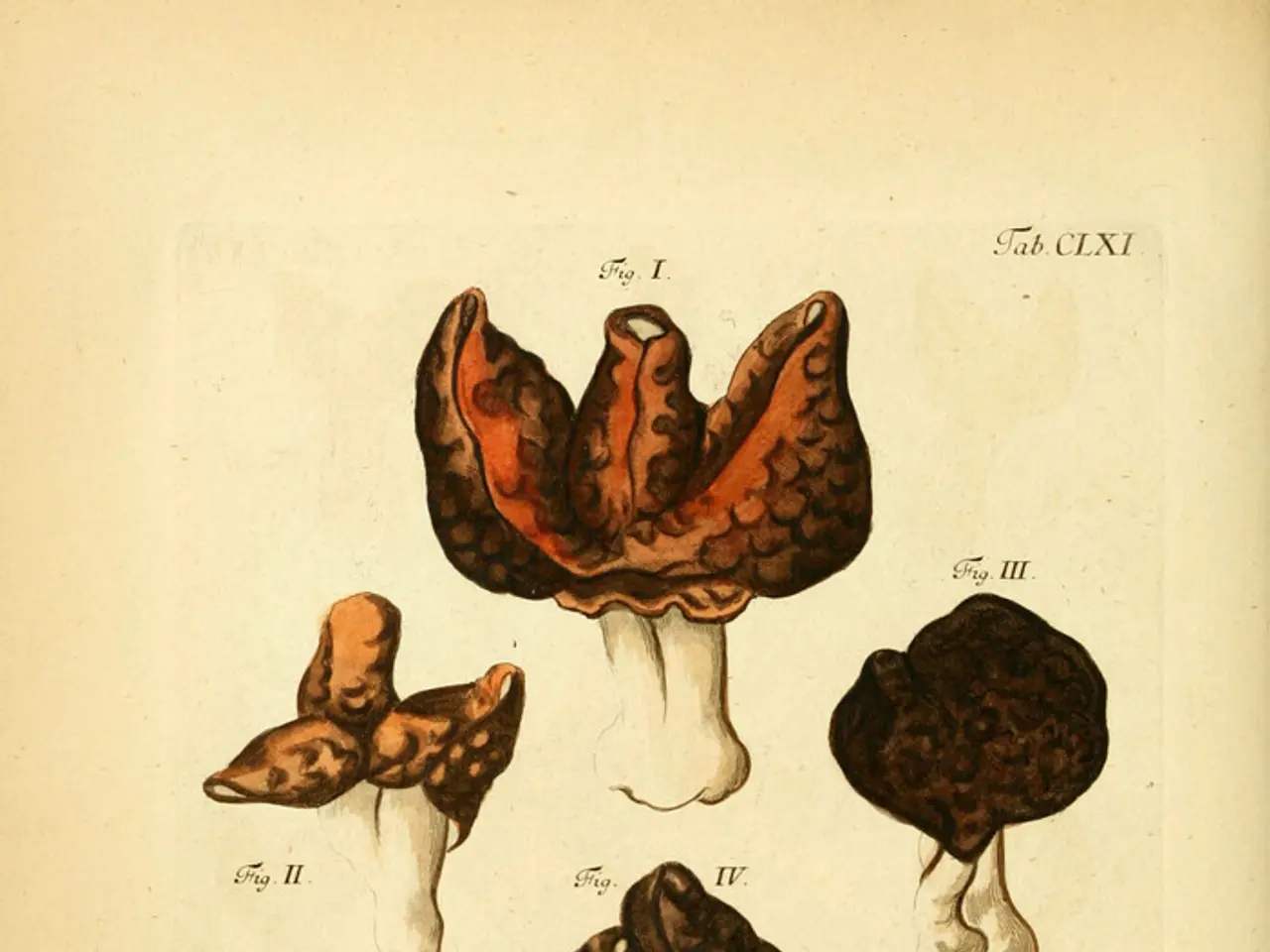Natural Enhancement of Mood and Mental Health Through the Use of Lion's Mane Mushroom
Lion's Mane Mushroom, scientifically known as Hericium erinaceus, stands out in the realm of mood-enhancing supplements due to its natural origin and minimal side effects. This unique fungus has been the subject of numerous studies, consistently reporting improvements in various aspects of brain function and cognitive resilience.
Cognitive Benefits
Several human clinical trials indicate significant improvements in memory, learning, focus, and overall cognitive function, particularly in aging adults or those with mild cognitive impairment (MCI). For instance, a 2009 study by Mori et al. found that daily supplementation (750 mg of Lion's Mane powder) resulted in improved cognitive scores after 8 weeks, with continued improvement through 16 weeks. Notably, the benefits diminished after stopping supplementation, suggesting ongoing intake is required to maintain effects.
Another 12-week trial in healthy adults aged 50+ showed that 800 mg of Lion's Mane enhanced recognition functions and cognitive performance even in people without existing cognitive decline.
Additional studies suggest Lion's Mane may reduce "brain fog," improve sustained attention, and support neuroprotection by defending against oxidative stress and inflammation, all of which contribute to better brain performance and resilience.
Mood-Enhancing Effects
Preliminary trials indicate Lion’s Mane may alleviate symptoms of anxiety and depression, supporting emotional regulation and mood stabilization. These effects are likely linked to its neurotrophic and anti-inflammatory properties, although clinical data specifically targeting mood are less extensive than for cognitive outcomes.
The mushroom also supports stress adaptation, which can indirectly improve mood by enhancing resilience to psychological stressors.
Mechanisms
Lion’s Mane stimulates Nerve Growth Factor (NGF), which is critical for neural plasticity, memory, learning, neuron repair, and mood regulation. This biological action distinguishes it from many other functional mushrooms which mostly support immune or general wellness.
Its neuroprotective properties may help guard against cognitive decline and mental fatigue by reducing oxidative damage and inflammation in the brain.
Dosage and Usage
Most human studies use daily doses ranging from 500 mg to 800 mg of extract or powder. Effects typically become evident after 4-8 weeks of consistent use, with continuous supplementation recommended to sustain benefits.
In Summary
Strong and growing clinical evidence supports Lion’s Mane mushroom as a natural nootropic and adaptogen that can improve cognitive function, memory, learning, focus, and mood through well-defined neurotrophic mechanisms. While more large-scale and long-term studies are needed, current research positions Lion’s Mane as a promising supplement for brain health and emotional well-being.
Emerging research suggests that Lion's Mane may offer potential benefits in the context of neurodegenerative diseases such as dementia and Alzheimer's.
Read also:
- Stem cells potentially enhancing joint wellness and flexibility during aging process?
- Obtaining Ozempic: Secure and Legal Methods to Purchase Ozempic Online in 2025
- Home-Based Methods and Natural Remedies for Managing Atherosclerosis
- Exploring the Natural Path: My Transition into Skincare with Cannabis Ingredients






